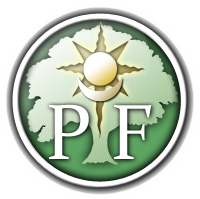 Pagan Federation logo | |
| Abbreviation | CAW |
|---|---|
| Formation | c. 1971 |
| Type | Religious organization |
| Purpose | Serve UK-based community who identify with Paganism and Neopaganism |
| Headquarters | London, UK |
| Location | |
Membership | 2,500+ |
The Pagan Federation is a UK-based religious advocacy group. Formed in 1971 as the Pagan Front, the group campaigns for the religious rights of Neo-pagans with the aim of educating both civic bodies and the general public.[1][2]
The Pagan Federation is a constituted voluntary organisation, registered as a Private Company limited by guarantee, with exemption for use of 'limited' with Companies House on 22 August 2000, with its nature listed as a Religious Organisation.[3]